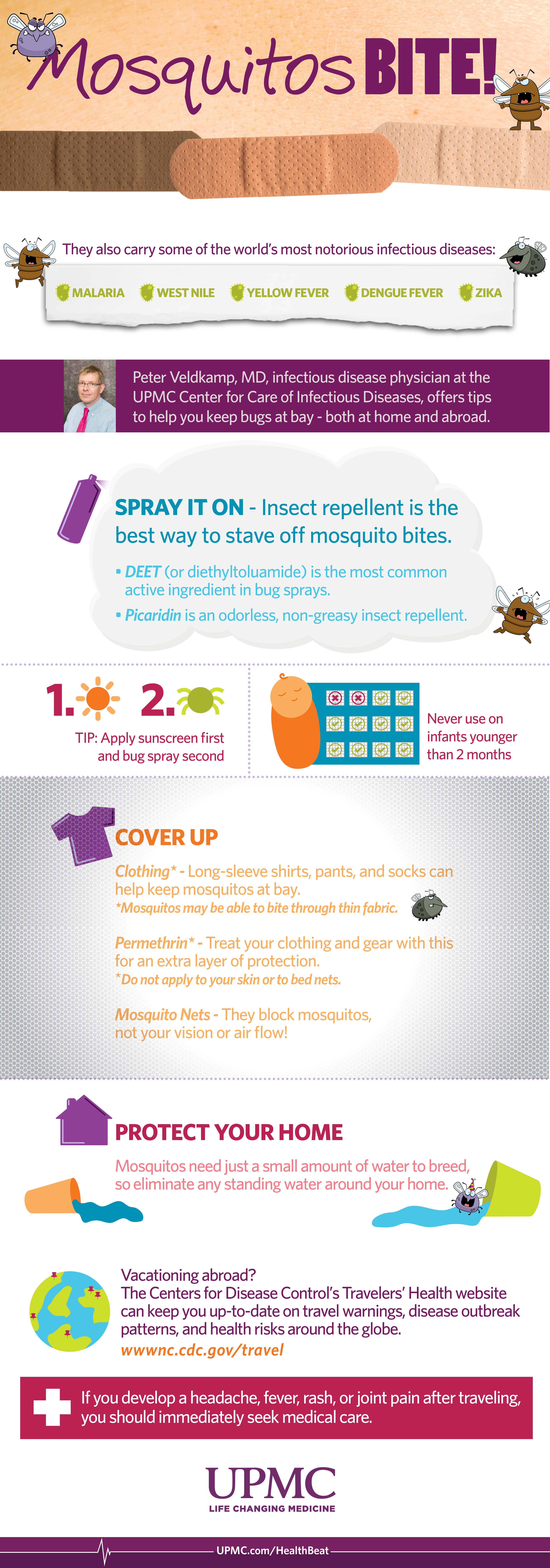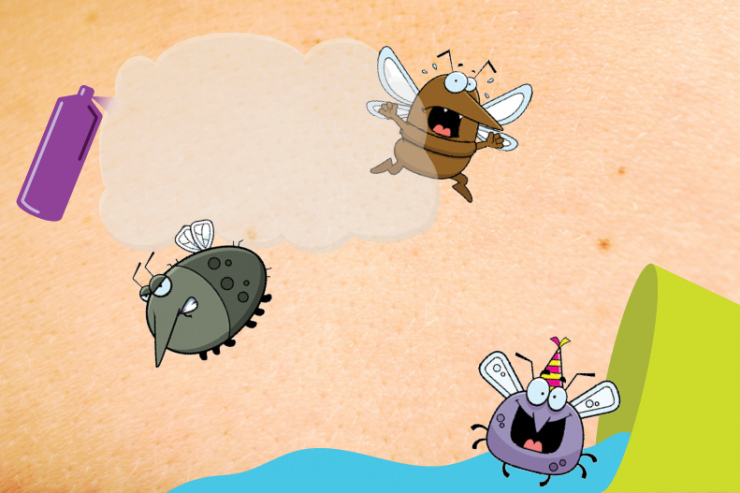Mosquito bites might just be the most unpleasant part of the summer season — right up there with sunburn.
Aside from dotting your skin in red, itchy spots, mosquitos are the culprits behind some of the world’s most notorious infectious diseases, including malaria, West Nile virus, yellow fever, dengue fever, and Zika.
Peter Veldkamp, MD, infectious disease physician at the UPMC Center for Care of Infectious Diseases, offers tips to help you keep bugs at bay — both at home and abroad.

The Importance of Mosquito Repellent
Insect repellent is the best way to stave off mosquito bites (and, yes, these repellents are safe for use). Repellents that contain a higher percentage of active ingredients offer the highest levels of protection.
- DEET (or diethyltoluamide) is the most common active ingredient in bug sprays. Developed in 1944 by the United States Department of Agriculture, DEET helps repel a variety of biting insects, from mosquitos to fleas to chiggers. The drawback? This popular ingredient can give off a distinctive odor.
- Picaridin is an odorless, non-greasy insect repellent. This synthetic compound was developed by a pharmaceutical company in the 1980s and has been approved for use in the United States since 2005.
You should only use repellents approved by the Environmental Protection Agency. These substances are proven safe, even for children and women who are pregnant or breastfeeding. The exception? Insect repellent should not be used on infants younger than 2 months.
Always follow instructions when applying insect repellents — and don’t forget to carry a bottle with you throughout the day. If you’re wearing sunscreen, always apply sunscreen first and bug spray second to ensure the effectiveness of these products.
Beyond Bug Spray: How to Prevent Mosquito Bites
Cover Up for Mosquito Protection
If weather permits, long-sleeve shirts, pants, and socks can help keep mosquitos at bay. Keep in mind, mosquitos may be able to bite through thin fabrics.
For an extra layer of mosquito protection, you can use a substance called permethrin to treat your clothing and gear — but do not apply this product directly to your skin or to bed nets.
Head Inside
When in doubt, stay inside. Turn up the A/C and close windows and doors, if you can. In some locales, it may be necessary to sleep beneath a mosquito net.
Mosquito netting is simply a fine mesh that blocks mosquitos from penetrating, without hindering your vision or air flow. Many mosquito nets hang like a tent over beds, but this netting is also used to cover sleeping bags, windows, and doors. Mosquito nets are most frequently used in countries where malaria and other insect-borne illnesses are common.
Protect Your Home from Mosquitos
Mosquitos need just a small amount of water to breed. So head to your backyard and tip over any pools, buckets, or containers that hold still water. If you use a tarp to cover your grill or firewood, tie it tightly: Rainwater can pool beneath these covers, luring in bugs.
Read the Insect Repellent Warnings
Vacationing abroad? The Center for Disease Control’s Travelers’ Health website can keep you up-to-date on travel warnings, disease outbreak patterns, and health risks around the globe. You can also learn about peak mosquito activity times, like dusk or dawn, for example.
If you develop a headache, fever, rash, or joint pain after traveling, you should immediately seek medical care.
